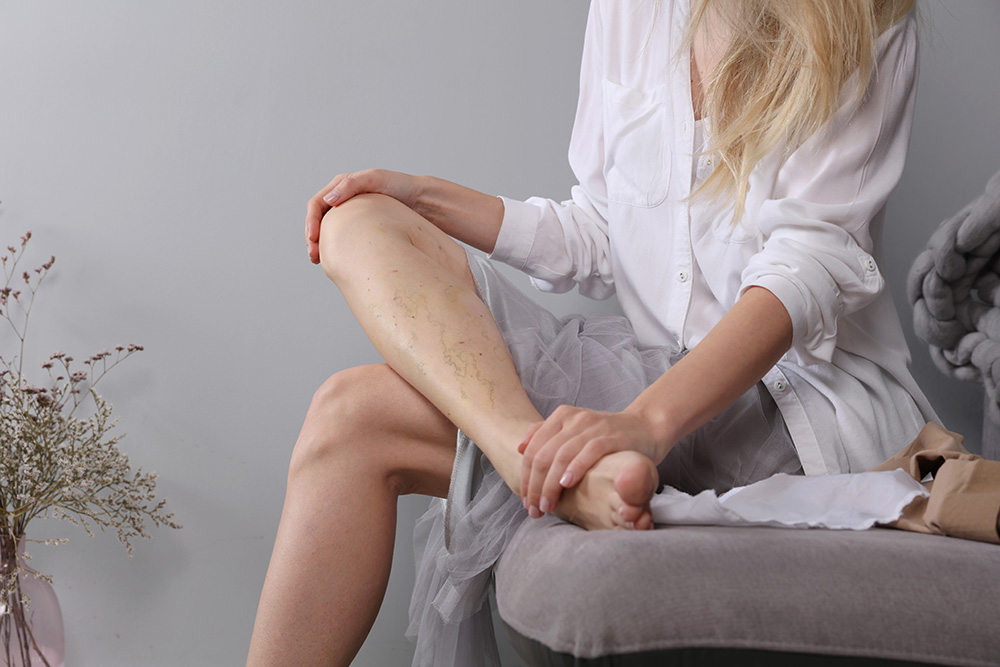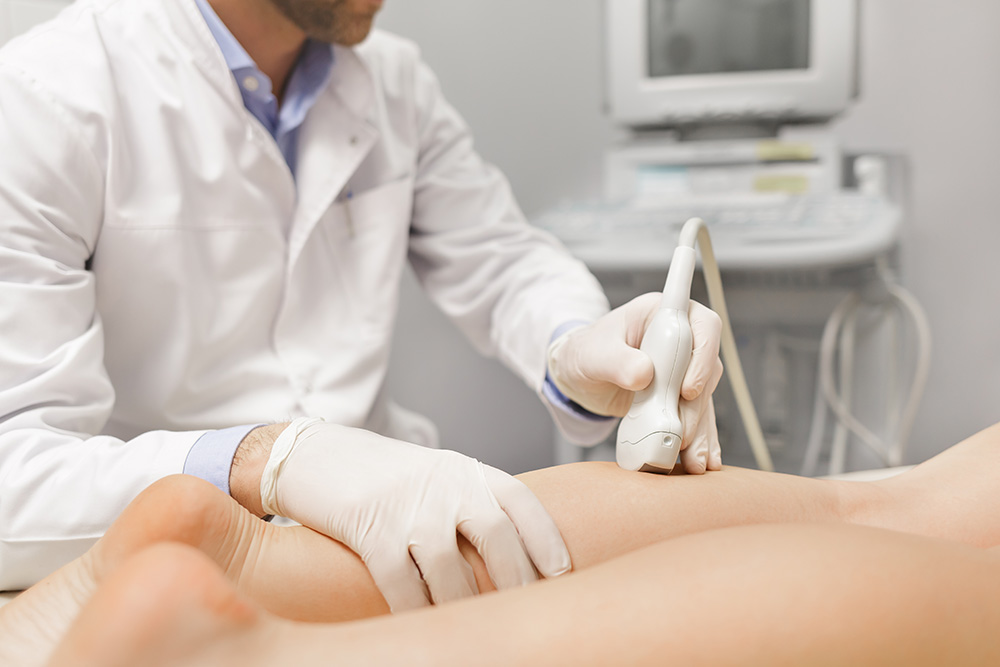Changes in temperature throughout the year can impact how your veins function and feel. Whether you're dealing with swelling in the summer or stiffness during winter, it's essential to understand how the seasons affect circulation and what steps you can take to maintain healthy veins.
In this blog post, we’ll explore how weather influences vein health and offer practical tips for keeping your legs comfortable and supported year-round.
How Seasonal Changes Affect Vein Health
Your circulatory system responds to environmental conditions, especially temperature.
Seasonal changes can impact your veins differently, from how well blood flows to how much pressure is placed on your vein walls.
Understanding these shifts can help you stay ahead of vein-related symptoms and prevent flare-ups before they happen.
Why Temperature Matters for Circulation
Temperature extremes, including hot and cold, influence how blood vessels expand or contract.
In warm weather, veins may dilate, increasing pressure on vein walls.
In cold weather, veins constrict, which may seem beneficial but can limit circulation and aggravate existing issues.
Knowing how seasons affect veins is the first step to protecting them.
Vein Care in Hot Weather
The warmer months bring more opportunities for movement and outdoor activity and a higher risk of visible vein symptoms.
Increased temperatures can cause veins to expand, leading to swelling, discomfort, or worsening of existing vein conditions.
Taking the proper precautions during summer can help you enjoy the season while protecting your circulatory health.
How Heat Impacts Veins and Circulation
Summer heat leads to vasodilation, where veins expand to help the body cool. Unfortunately, this can:
● Worsen varicose or spider veins.
● Cause leg fatigue and swelling.
● Create significant discomfort during prolonged standing, especially in environments with limited movement or poor circulation support.
Common Vein Issues in Summer and How to Prevent Them
Some of the most common summer vein concerns include:
● Swelling and heaviness in legs.
● Visible vein bulging.
● Leg cramps or aching by day's end.
Prevent these by:
● Wearing lightweight compression garments.
● Elevating your legs after outdoor activities to promote venous return and reduce fluid accumulation.
● Avoiding peak sun hours for strenuous activity.
Best Practices for Vein Health During Hot Months
Support vein care in summer or during warmer temperatures with these strategies:
● Stay hydrated to support healthy blood flow.
● Take cool showers to soothe swollen legs.
● Limit salt intake to optimize fluid balance and reduce vascular stress.
● Choose breathable, supportive footwear for walking.
Vein Care in Cold Weather
During winter, people often experience reduced circulation due to colder temperatures and lower activity levels.
While some symptoms, like swelling, may temporarily improve, others, like aching or heaviness, may increase if blood flow becomes restricted.
Knowing how to care for your veins in cold weather can help you feel more comfortable and avoid long-term complications.
How Winter Affects Your Veins
In lower temperatures, your veins naturally narrow (vasoconstriction), which can reduce swelling and inflammation. However, reduced circulation in colder months can:
● Worsen symptoms of venous insufficiency.
● Lead to stiff, achy legs due to decreased blood flow.
● Discourage physical activity, which is vital for healthy veins.
Cold Weather and Varicose Veins: Risks and Prevention
Cold weather and varicose veins don’t always mix well. While the cold may temporarily relieve swelling, decreased circulation can lead to heaviness and discomfort. Bundling up can help, but prevention is key.
To protect your veins in winter:
● Avoid sitting or standing too long without movement.
● Elevate your legs regularly to support venous circulation.
● Wear compression stockings if your provider recommends them.
Tips to Maintain Healthy Circulation in Winter
Support your veins this winter by:
● Taking short walks throughout the day.
● Doing gentle leg stretches indoors.
● Staying warm, especially in your lower limbs.
● Drinking water—even if you don’t feel thirsty in cold weather.
Year-Round Vein Health Tips
No matter the season, adopting healthy habits can support circulation and help prevent vein disease.
Making small, sustainable lifestyle changes can help keep your veins strong, flexible, and functioning properly.
Lifestyle Changes for Better Circulation in Any Season
For better vein health, we encourage you to:
● Move often. Even short bursts of movement can improve blood flow.
● Maintain a healthy weight, as excess weight puts stress on the vascular system.
● Elevate your legs, especially after long periods of sitting or standing, to support venous return and reduce lower extremity pressure.
Hydration and Nutrition for Healthy Veins
What you eat and drink affects circulation. To support vein health:
● Drink plenty of water daily.
● Eat foods rich in flavonoids like berries, citrus, and leafy greens to support vascular elasticity and circulation.
● Minimize consumption of processed foods with high salt and sugar content to promote optimal vascular health.
The Role of Compression Therapy in Different Seasons
Compression therapy helps reduce swelling, improve circulation, and manage symptoms of vein disease year-round.
In winter, thicker compression stockings provide added warmth.
In summer, consider lightweight, breathable options.
When to See a Vein Specialist
Even if you follow seasonal vein care best practices, knowing when to seek medical guidance is important.
Vein conditions often develop gradually, and early detection can lead to faster, more effective treatment options.
Recognizing Signs of Vein Disease
Signs that indicate a vein consultation may be needed include:
● Persistent leg swelling or heaviness.
● Skin discoloration near the ankles.
● Visible varicose or spider veins.
● Leg ulcers or sores that are slow to heal.
Protect Your Veins with Tennessee Vein Center
From freezing temperatures to summer heat, your veins face challenges every season.
Whether you’re noticing discomfort in the heat of summer or stiffness during winter, the team at Tennessee Vein Center is here to help.
Our specialists offer personalized care to support seasonal vein needs and long-term vascular health. We’ll evaluate your symptoms, address underlying conditions, and customize a treatment plan to improve circulation and comfort.
You don’t have to manage vein discomfort alone. Contact us today to schedule a consultation and take the next step toward better vein health.







.jpeg)
.jpeg)


